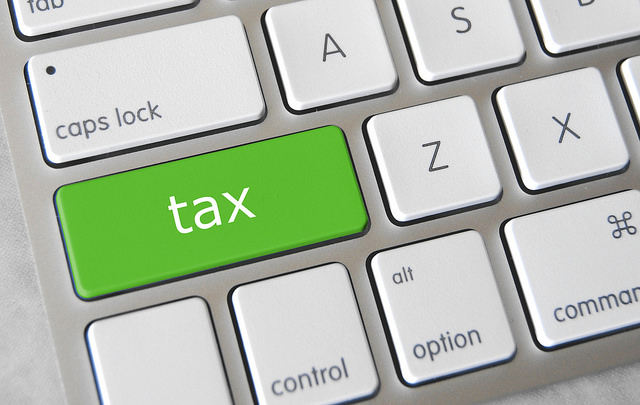
Yesterday the Wall Street Journal posted a blog on how some Dunkin’ Donuts in New York and New Jersey have been caught charging customers with unnecessary sales tax. Some Dunkin’ Donuts in New Jersey added on a 7% sales tax and some in New York added on an 8.875% sales tax on the purchase of packaged coffee and bottled water sold at the store. The issue with adding a sales tax to these items is that both New York and New Jersey have state laws exempting packaged coffee and bottled water from sales tax.
A couple overcharged customers decided to take action against this unnecessary tax imposed on them and are suing the parent company of Dunkin’ Donuts in both states.
Apparently the Dunkin’ Donuts that were applying the unwarranted sales tax were owned and operated by individual franchisees. The owners of the franchised Dunkin’ Donut stores should have been aware of the state laws governing their operation and should have complied with the taxation specifications exempting packaged coffee and bottled water from sales tax.
If so much confusion happened while getting a cup of Joe at some local Dunkin’ Donuts, then image how much confusion would happen if lawmakers started imposing sales taxes onto online purchases from small business.
The issue of consumers suffering from excess sales tax due to confusion of individual sellers mirrors the issues presented by the Marketplace Fairness Act, which would have placed extreme regulatory burdens on small businesses that operate online.
The Act would have forced small online retailers to become tax collectors for states by making them to comply with over 10,000 complicated tax codes, including 45 state sales taxes and local tax jurisdictions.
To make matter worse, if small business became too overwhelmed and confused with these tax regulations imposed upon them and made an error in collecting taxes they would be forced to settle any disputes with out of state revenue boards in out of state courts, creating an even more complicated and burdensome situation.
If consumers were upset having to pay an extra tax because small business owners could not follow New York and New Jersey tax code, then imagine how angry consumers would be if small businesses in every state started making mistakes in tax collection and imposed unnecessary taxes on consumers out of pure confusion with the thousands of tax codes they are suddenly forced to comply with.
The Marketplace Fairness Act is still lurking in the wings. The taxers and spenders on Capitol Hill are pushing hard to get this legislation through. Governors want it so they can tax people that cannot vote for them. Big Box stores want it to drive out their mom and pop competition by forcing them to deal with excessive paper work and regulatory threats from other states.
If businesses physically in New York and New Jersey, who should be very familiar with their tax code exemptions for sales tax, were confused and couldn’t get it right, it’s pretty clear that online sellers dealing with over 10,000 state and local tax jurisdictions would easily get confused.

